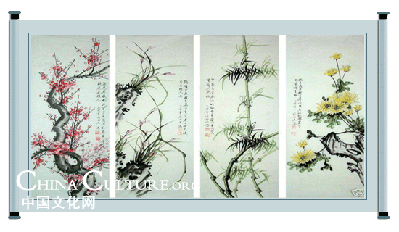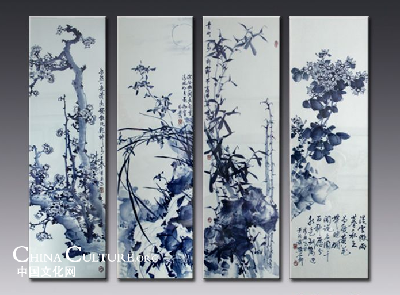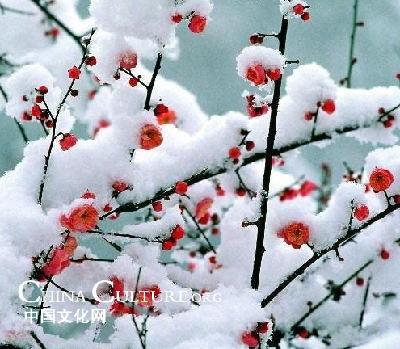Four gentlemen in plants
In ancient China, people called a man of great virtue a gentleman.
In the world of flowers plum blossoms, orchids, bamboo and chrysanthemums are known as the four gentlemen in China because these plants’ natural character have something in common with human virtues.
They have all long been featured in ancient paintings and poems used to express loftiness, righteousness, modesty and purity by Chinese literati.
Plum blossoms
Plum blossoms are cold-resistant flowers that bloom in early spring and together with pine and bamboo they are reputed as the “three friends in winter”.
According to historical records, plum blossoms appeared on drawing paper as early as the Northern and Southern Dynasties (420-581).
Painting plum blossoms came into vogue by the Northern Song Dynasty (960-1127); at that time, the most famous painter was the Buddhist monk Zhong Ren who created a unique way of drawing with Chinese ink, controlling its shades to give a very active appearance.
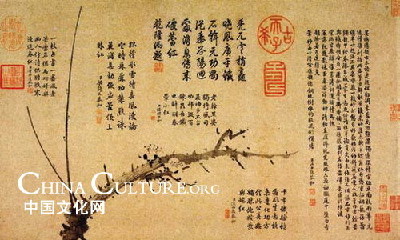 |
|
The Painting of Plum blossoms by Wu Zhen from Yuan Dynasty (1271-1368) |
Wang Mian, the most outstanding master in the Yuan Dynasty (1271-1368) was notable for his vigorous masterpiece Ink Plum Blossom.
Orchids
Grown in deep mountain valleys, orchids are one of the top ten well-known flowers in China. Chinese people usually link orchids with elegance owing to their delicate fragrance that refreshes people’s minds and the elegant figures swaying slightly in the wind
Becoming popular during the Tang Dynasty (618-907), orchids arrived later than plum blossoms and people didn’t pay much attention to orchid paintings until Song Dynasty (960-1279). It is said that Sushi (a famous poet in Song Dynasty) once painted orchids with some thorns between them, implying that a gentle man can tolerate a mean person.
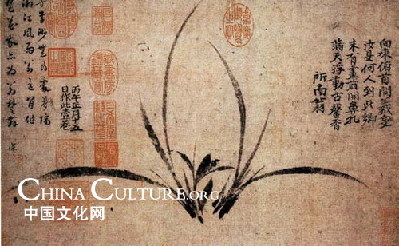 |
|
Ink Orchids by Zheng Sixiao from Song Dynasty(960-1279) |
With the downfall of the Northern Song Dynasty (960-1127), people in the early Southern Song Dynasty (1127-1279) expressed their unyielding integrity by painting orchids. The masters in that time were Zhao Mengjian and Zheng Sixiao.




